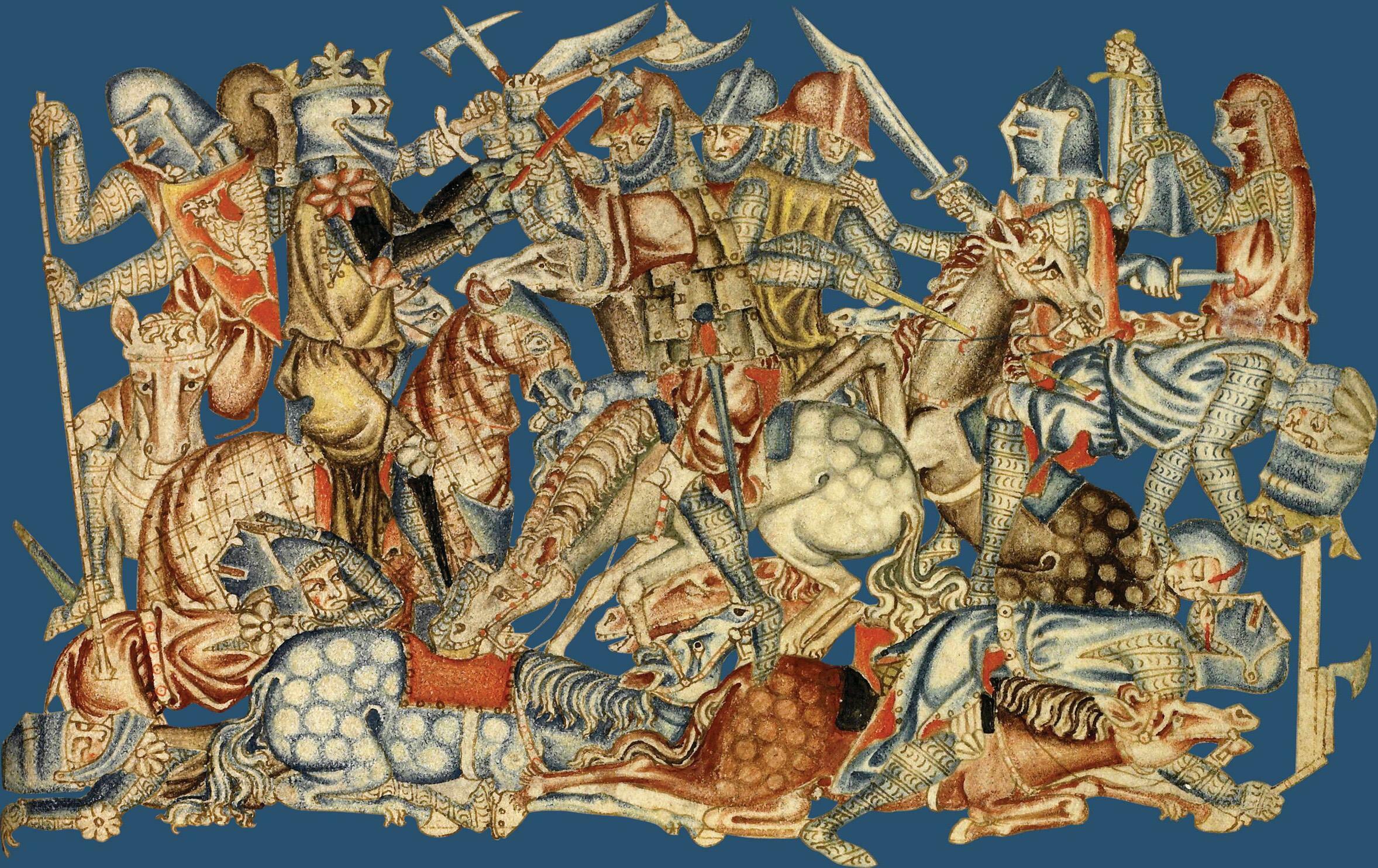試す 金 - 無料
Scotland's greatest victory
BBC History UK
|September 2023
The image of plucky warriors sending a cocksure English army into flight has secured Bannockburn's status in the annals of Scottish history. Helen Carr chronicles the 1314 clash that transformed the balance of power between two warring nations

In June 1314 a great army rumbled forwards, parallel to the river Forth, following the old Roman road that led north across the war-ravaged Anglo-Scottish border. The king of England, Edward II, rode at the head of an army of around 18,000 infantry and 2,000 heavy cavalry horses. A baggage train allegedly 20 miles long groaned under the weight of arms, plate, food and wine and the administrative paraphernalia associated with the management of the crown, including England's Great Seal. The army was marching to relieve Stirling Castle, an English-held bastion 40 miles north-west of Edinburgh that was under siege by Edward Bruce, brother of the self-proclaimed king of the Scots, Robert.
Edward II was a king in a hurry. Should the Scots capture Stirling, he would lose access to the north of Scotland and with it, his grip on the land his father, Edward I, the self-styled 'Hammer of the Scots', had conquered at the outbreak of war in 1296. And so he had mustered an army in Berwickon-Tweed, the English administrative centre in the north, and marched in haste. The knight Sir Thomas Gray rode towards Stirling that day and 40 years later his son (also Sir Thomas Gray) would record his father's account of the battle in his book Scalacronica.

このストーリーは、BBC History UK の September 2023 版からのものです。
Magzter GOLD を購読すると、厳選された何千ものプレミアム記事や、10,000 以上の雑誌や新聞にアクセスできます。
すでに購読者ですか? サインイン
BBC History UK からのその他のストーリー

BBC History UK
On the skids
Richard Rodgers and Oscar Hammerstein II's smash musical Oklahoma! opened on Broadway on 31 March 1943.
1 min
Christmas 2025

BBC History UK
Small pleasures
Memory is imperfect, but what if you could get a professional model maker to recreate a moment from the past?
1 min
Christmas 2025

BBC History UK
Bath in five places
In the Georgian era, Bath became arguably Britain's most fashionable destination. KIRSTEN ELLIOTT promenades five historic highlights
3 mins
Christmas 2025

BBC History UK
End times
Why do civilisations that dominated their epoch fail? In an era of autocracy, climate change, the rise of Al and a first-hand understanding of how deadly pandemics can be, it's a question that seems pertinent.
1 min
Christmas 2025

BBC History UK
What are the origins of the Yule Lads?
To learn about the Jólasveinar (Yule Lads), we must start with their mother, the terrifying ogress Grýla. Her name appeared in Icelandic texts as early as the 13th century, although it wasn’t until later that those 13 mischievous lads became associated with her. Folk tales and poems tell how she descends from the mountains with an empty sack to stuff full of children. Grýla owns the monstrous Jólaköttur (Yule Cat), which roams the countryside on Christmas Eve, searching for children to gobble up if they're not wearing new clothes.
1 mins
Christmas 2025

BBC History UK
Santa Claus v Father Christmas
The true identity of the white-bearded, red-robed figure who fills children's stockings at Christmas has long been debated. Thomas Ruys Smith sizes up the merry contenders
8 mins
Christmas 2025

BBC History UK
Frontier friction
Set in Washington Territory in 1854, The Abandons is a Western that's unusual for having two matriarchs, women whose lives become entangled, at its centre.
1 min
Christmas 2025

BBC History UK
The Last Days of Pompeii: The Immersive Experience
Delve into the culture of daily Roman life, witness the momentous eruption of Mount Vesuvius, and follow its fallout in Immerse LDN's new exhibition. In a blend of cutting-edge technology and vivid storytelling, this exhibition launches visitors into Pompeii's rich history with recreations of the ancient city's beautiful pre-eruption landscape, a 360-degree virtual reality Roman amphitheatre experience, and a digital metaverse recreating Pompeii's 'Villa of Mysteries'.
1 min
Christmas 2025

BBC History UK
Elizabeth Marsh The corsair's captive
Taken hostage by a Barbary ship's captain in the 18th century, a young Englishwoman found herself fighting for her freedom in Marrakech. ADAM NICHOLS introduces a brave captive who later wrote a book about her dramatic experiences
6 mins
Christmas 2025

BBC History UK
29 DECEMBER 1170: Thomas Becket is murdered in Canterbury
Knights loyal to Henry II rid him of the “low-born cleric”
2 mins
Christmas 2025
Translate
Change font size
